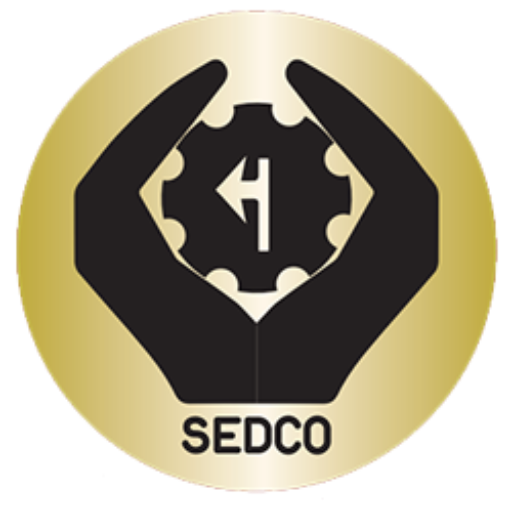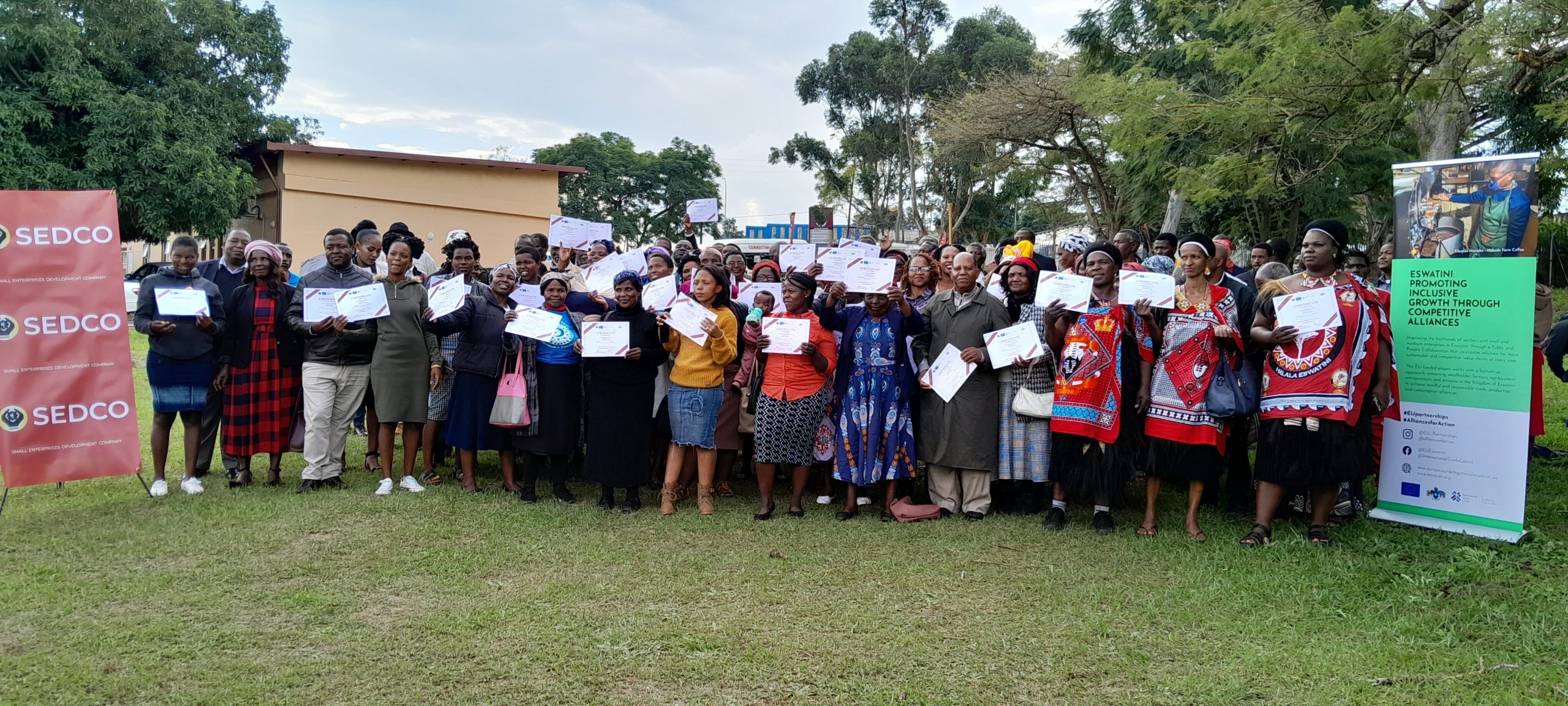The Small Enterprises Development Company (SEDCO) hosted a series of graduation ceremonies for over two hundred participants who completed SEDCO’s entrepreneurship training programme. The participants are members of cooperatives, smallholder farmers, and artisans who are beneficiaries of the International Trade Centre and SEDCO partnership which aims to increase the competitiveness and sustainability of Eswatini’s MSMEs, Social Enterprises, and Producer Associations by strengthening the capacity of the support institutions and establishing value-creating alliances amongst critical stakeholders.
Graduations
The first graduation ceremony was held at Ntfonjeni Inkhundla whereby a total of 72 members from Mgubudla Multipurpose, Mkhovu Multipurpose, Mswati Multipurpose, and Mavulandlela Multipurpose graduated. The members are small-scale horticulture farmers operating in the Hhohho region.
The second graduation ceremony was held in Vuvulane, and about 30 smallholder farmers and artisans received certificates. For the smallholder farmers who specialise in permaculture, SEDCO assisted to register a cooperative so they can turn to start producing at a larger scale. The artisans were assisted with product development, including marketing skills.
The final graduation ceremony consisted of 107 participants from Eswatini Coffee Farmers, Jubukweni Coffee Farmers, Thulwane Coffee Farmers, Indzaba Yami Cooperative, Makhungutja Weaving, Eswatini Farmers Union, and Maceleni Investment.
The participants were trained in recordkeeping, financial management, costing and pricing, and business planning. These courses are intended to improve MSME business management for sustainability by enhancing their capacity to effectively manage their enterprises, improve profitability and ensure the sustainability of their business ventures.
SEDCO
Speaking at the graduation ceremonies, SEDCO’s Chief Executive Officer Khethiwe Mhlanga said participants should aim to have their products sold in all the big retail stores in the country as the country needs more locally produced products. She encouraged the participants to be proactive about engaging in income generation activity to improve their families’ and communities’ livelihoods.
The ITC-SEDCO programme also involved the handholding of the business owners to ensure growth. This handholding entailed one-on-one business coaching and mentoring by SEDCO business counsellors. During these sessions, beneficiaries were assisted with various business practices including, registering companies and companies. SEDCO further provided tailor-made capacity development plans for every enterprise to ensure sustainability and continuity after the programme.
International Trade Centre
Speaking on behalf of the International Trade Centre, Phetsile Ndzabandzaba revealed that this project which is deemed “ITC-Alliances for Action project” Eswatini aims to support job creation for small farmers, entrepreneurs, and artisans. She acknowledged the European Union for the financial support which enables ITC and SEDCO to strengthen the capacity of rural, grassroots-level MSMEs.
Ndzabandza stated that ITC works closely with smallholder farmers, processors, and artisans to support them in transforming food systems into sustainable growth. “We understand the challenges of high levels of poverty and unemployment that our country is facing and through this project, we are trying to address the major hindrances of the MSME sector to benefit people living in vulnerable situations or under-represented groups such as youth, women entrepreneurs and people with disabilities”, said Ndzabandzaba.
Ndzabandzaba also praised the participants for committing to this programme by attending training and all mentorship session. She further requested that the participants share what they have learned with other people including family members so that more Emaswati can be capacitated with business skills.

